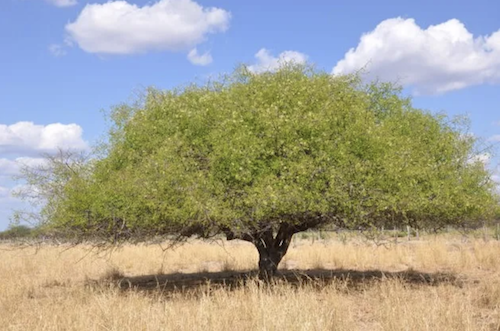Voltalia is an “enterprise à mission”, a French legal framework meaning it pursues a social and environmental purpose with sustainability goals. All the Voltalians (900) have one idea in mind, and that is to improve the global environment. One could almost speak of the “French NGO” Voltalia. It is 71% owned by the Mulliez family, owners of the brands Auchan, Decathlon, Leroy Merlin, Kiabi and Norauto. Voltalia sells electricity from natural resources such as wind, sun and rivers. The planet works voluntarily for Voltalia.
In Brazil, Voltalia’s philanthropy has raised protests, questions, legal actions and concerns about the future of the Lear’s macaws (or indigo macaws, Anodorhynchus leari, Appendix I) and other threatened macaws.
The Canudos wind power plant, in the micro-region of Euclides da Cunha, State of Bahia, has mowed the caatinga (1) and set 91 wind turbines over 100 metres high. The blades are 160 metres in diameter. 1,500 Lear’s macaws nest and fly in the area thanks to the efforts of the Biodiversitas Foundation which, precisely in Canudos, manages 1,500 hectares serving as “reservoirs” for Lear’s macaws. In 2000, there were 228 Lear’s macaws, and now there are more than 1,500. The Voltalia wind farm in Canudos is as outrageous as a wind farm in the Camargue of the flamingos. The farm was built without the prior impact assessment required by CONAMA (Conselho Nacional do Meio Ambiente), the environmental services of the State of Bahia gave Voltalia the green light after simply receiving simplified documents, a kind of artist’s impression mixed with a theoretical balance of amazing volts. Voltalia initially said that all its projects in Brazil have regulatory permits but in July 2021 the State of Bahia requested the suspension of work. The petition for the cancellation of the project, put online by an 18-year-old activist, gathered 60,000 signatures in a few days. In September 2021, work resumed and the French company promised an investment of 10 million reais (1.6 million € and 1.9 million US$), which will be devoted to mitigating environmental impacts and better understanding the dependence of Lear’s macaws on the seeds of licuri palms (Syagrus coronata). Licuri palms were among the victims of the deforestation imposed by Voltalia’s eruption into the area. Erica Pacifico, an “independent biologist” who gives advice to industrial companies, has been involved in the capture of juvenile Lear’s macaws and the fitting of GPS trackers that will allow a better understanding of their movements and dispersal and possibly avoid or reduce mortality from encounters with wind turbine blades and wind towers. The CEO of Voltalia in Brazil wants to “leave the country a technical and scientific legacy”.
In Dom Basilio, micro-region of Livramento do Brumado, also in the State of Bahia, Voltalia is accused of having taken advantage of the occupation of hills by squatters in August 2021 to open a 1.3-km long and 8-metre wide track at the top of which will be installed a measuring tower of the trade winds that Voltalia is seeking to catch at all costs in order to fulfil its mission. The imbu trees (Spondias tuberosa) have been cut down. It is prohibited to cut them down since 2005. “The French president Emmanuel Macron is always criticising deforestation in Brazil, but now a French company is doing it here,” says a surveyor who is trying to decipher the local land register and who has joined the landowners’ grievances. The municipality of Dom Basilio ordered the suspension of work. Voltalia acknowledged the isolated error of a subcontractor, again stating that it respects the environmental and real estate regulations in force in Brazil. “We are in the process of installing 80 wind measuring towers in several Brazilian States and we are doing so in strict compliance with the laws, avoiding any illegal land grabbing.”
 [2]Spondias tuberosa
[2]Spondias tuberosa
© Correio 24
The exploit of Voltalia in the State of Bahia is the Serra da Borracha wind complex in the micro-region of Juazeiro. Voltalia has a great affinity for macaws, as if they were lookouts and informants of wind frequency and intermittency. In Serra da Borracha, Voltalia wants to install 48 turbines on the ridges near the federal reserves of Curaçá and Juazeiro, where juvenile Spix’s macaws (or little blue macaws, Cyanopsitta spixii, Appendix I), a species that became extinct in Brazil in 2000 due to the cumulative action of trafficking for pet birds, deforestation and to a lesser extent opossums and marmosets, are to be released this summer and in the summers to follow.
Cyanopsitta spixii
© Cornell Lab of Ornithology [4]
The NGO Save (Sociedade para a Conservação das Aves do Brasil) considers that Voltalia’s project is not compatible with the release of the Spix’s macaws. “They are all the more fragile because they were raised in captivity and have not yet assimilated all the reflexes of life in the wild.” Like the Lear’s macaws around Canudos, they have a flight distance of 50 to 60 km. The NGO Salve as Serras (Save the Mountains) points out that the mortality of Lear’s macaws after collisions with power lines and pylons is itself significant (50 between 2018 and 2021) and it is concerned about the additional devastating effects of Voltalia’s wind turbines. “There is no way to train macaws to change their flight path.” “Wind power is considered clean but projects in inappropriate locations are harming traditional communities and biodiversity.” About the Serra da Borracha project, Voltalia refused to respond to the media ((o))eco’s request for an interview at the beginning of June 2022.
(1) Biotope in the northeast of Brazil made up of trees, cacti and grasses that resist the semi-arid climate.

